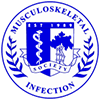Authors: Mortazavi J, Aalami A, Purtill J, Parvizi J, Rothman Institute, Philadelphia, PA
Title: Aseptic Failure after Total knee Replacement: Is it truly Aseptic?
Purpose: The purpose of this study was to determine whether or not patients who later became infected after revision total knee arthroplasty were truly aseptic before the revision.
Methods: We used our prospectively collected revision database to identify 397 patients who underwent revision total knee arthroplasty for aseptic reasons from December 2000 to December 2006. Of these revision surgeries, 19 subsequently failed as a result of infection. We reviewed preoperative ESR, CRP, and joint aspiration results as well as intraoperative biopsy and culture reports and compared these findings to the findings of patients who did not become infected after revision.
Results: Of the 397 patients who underwent revision for aseptic failure after total knee arthroplasty, 19 (4.8%) subsequently failed as a result of infection and underwent reoperation. None of those 19 patients fulfilled the previously-reported criteria for infection. The mean age of these patients was 64 years (range, 44-78 years). The mean time between first revision and next operation was 548 days (range, 15-1752 days). We were able to identify some clues to the development of later infection in our examination of pre- and intra-operative lab results. Using standard culture techniques for intraoperative joint fluid samples, we found that three of our patients had a slight (less than 25% of growth plate) growth of colonies of staphylococcus coagulase negative (two case) and pseudomonas (one case). Additionally, seven of our patients had an elevated preoperative ESR and CRP (more than 30 and more than 1 mg/dl, respectively).
Discuassion and Conclusion: Organisms can survive for a long times near and on a prosthesis without any signs and symptoms of infection. Some cases of aseptic loosening might in fact be low grade infections. In particular, organisms growing in biofilms are not usually detectable by standard culture methods. More investigation is needed to evaluate the use of more advanced methods in detection of low grade infection besides prosthesis.

